
Have you seen them? Those never-ending “longeing lines” at some of the larger shows? Exhibitors will be queued up 10 horses deep waiting for a place to longe; some wait at all hours of the day and night for their turn.
And no wonder. Longeing can be an effective tool for exercising your horse and preparing him to show. Still, some of what I see during these longeing sessions makes me cringe. Blunders like an extra person chasing the horse around in a circle. Or a dog running and barking behind the horse. Or exhibitors talking or texting on their phones while longeing.
I want to share a more intelligent way to longe. Growing up on a ranch, I was taught that longeing was a necessary part of becoming a good horseman. It reveals any unsoundness you might not be able to feel from the saddle, plus lets you check your horse’s overall body condition.
More important, it enables you to teach and reinforce respect and discipline in your horse, and it hones the connection you should have with him—at all times.
Time-Honored Tool
Longeing isn’t a modern technique. It’s been used by great horseman in many disciplines for centuries. Longeing is described in detail in the revered volume Riding Logic by Wilhelm Museler, an old-school master of the classical equestrian art—the full understanding of a horse, his mind, and his training.
Longeing is irreplaceable for first rides, cold mornings, show prep, and rehabilitation. (One of the reasons it works so well during rehab is, once a horse has been properly trained to longe, he knows he’s at work and won’t play and push the limits, thus avoiding re-injuring himself.)
This story is from the Fall 2020 edition of Horse and Rider.
Start your 7-day Magzter GOLD free trial to access thousands of curated premium stories, and 9,000+ magazines and newspapers.
Already a subscriber ? Sign In
This story is from the Fall 2020 edition of Horse and Rider.
Start your 7-day Magzter GOLD free trial to access thousands of curated premium stories, and 9,000+ magazines and newspapers.
Already a subscriber? Sign In
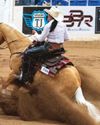
The Horse
LIFE TAKES US DOWN different paths, but I seem to be on just one, which is with the horse.
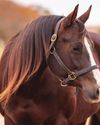
Decoding the Diseases Examined by AQHA's Six-Panel Test
The six-panel test is a diagnostic tool used to assess the genetic predispositions of horses. It's meant to discover if a horse has or is a carrier for certain hereditary diseases and traits.
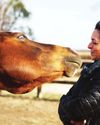
Love is Good
All horses are assured a hopeful, compassionate plan of care at This Old Horse, a program that helps not only horses but people, too.
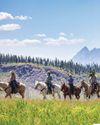
HORSE PACKING 101
Take your trail riding to the next level with nature-filled adventures in the back or front country.
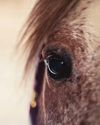
NEW HORSE; NEW PROBLEMS
Anew horse can bring excitement and energy to the barn, and even reinvigorate your passion. However, there are also a myriad of new problems that can come with a new horse, so learn how to introduce him properly to avoid these common issues.
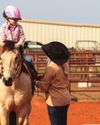
First-Timer Tips
Heading to a young rider's first event with their horse can be intimidating. Use these myths and truths to make it smoother sailing for yourself and your young rider.
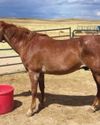
Re-Rescued: Aslan's Story
One special gelding learns about three different types of love during his rescue journey.
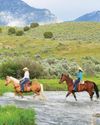
The Country's Hottest Horse Motels
Take your next trail-riding adventure to the next level by staying at one of these six horse motels across the United States.
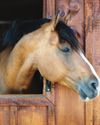
Outbreak! What We've Learned
Learn how disease outbreaks in recent years have changed the horse industry, and why it's so important to play your part when it comes to disease prevention efforts.
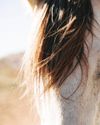
TRAINING THE SENSITIVE HORSE
Shift your mindset and grow your sensitive horse's pressure-handling skills to improve his confidence and your riding enjoyment.